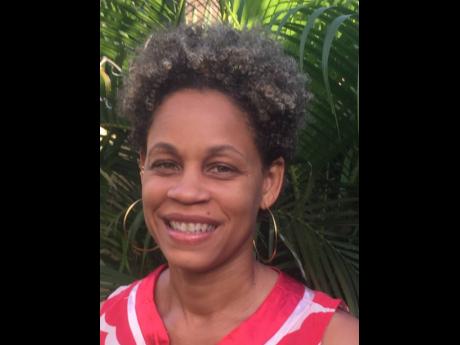Women MPs get flak for wrongs on Wright
A senior lecturer at The University of the West Indies has criticised women parliamentarians for their response to the epidemic of gender-based violence in Jamaica and wants the society to build pressure on them to represent the interests of women.
Senior lecturer at the Institute for Gender and Development Studies, Mona, Dr Maziki Thame, believes that recent outrage has not fuelled a national or social movement that has matched the strides achieved in the 1970s when several pieces of legislation were passed to rebalance gender imbalance.
Thame said that despite women becoming more academically qualified, there was a troubling preponderance of women in low-wage jobs, with others facing disproportionately higher levels of unemployment.
“The George Wright affair put a spotlight on the behaviours of those entrusted to legislate issues salient to gender equality and gender-based violence more specifically,” she said.
Thame, a political scientist, was making reference to an April 6 viral video showing a man beating a woman with his fists and a stool.
Westmoreland Central Member of Parliament George Wright, who has not denied or confirmed whether he is the abuser in the video, has been isolated by his Jamaica Labour Party and has gone on a leave of absence.
The police have discontinued a criminal probe because Wright and his partner, Tannisha Singh, have declined to help investigators.
“We should be concerned that though JLP women have made statements condemning gender-based violence, they have made no public demand for action on George Wright,” said Thame.
“We should be concerned that the speaker of the House, Marisa Dalrymple-Philibert, could be interpreted as having used her power to protect her colleague, George Wright, from scrutiny when she blocked attempts to move a motion to have him suspended.”
Thame was one of four panellists participating in a Tuesday round-table discussion on legislative reform in Jamaica.
The event was organised by the Institute of Gender and Development Studies Regional Coordinating Office and the United Nations and European Union, which are funders of the Spotlight Initiative.
BULLYING BEHAVIOUR
Thame also slammed “the bullying and silencing behaviour of parliamentarians in the House”, including what she viewed as the “heckling of opposition speakers” and the “haranguing” of Auditor General Pamela Monroe Ellis before the Public Accounts Committee (PAC).
Monroe Ellis was grilled in May by three government backbenchers on her absence from an audit exit interview and was pressured to name a journalist from The Gleaner by whom she was interviewed.
The backbenchers backed down after senior opposition lawmaker Dr Morais Guy noted that in his near two decades of experience on the Public Accounts Committee, the practice of the Auditor General’s Department not to name persons was never challenged and was not warranted now.
“Though we have the highest representation of women in Parliament since Independence, we should be concerned about the lack of bipartisan agendas for women,” Thame insisted.
Eighteen of the 63 MPs are women.
The senior lecturer said that she hoped that the lived experiences of women parliamentarians would have assisted them in identifying the ways in which women were the victims of subordination.
“We have to be cognisant that in politics, women are sometimes beneficiaries of patronage and are not necessarily acting on their own agendas with their own constituency,” Thame said.

